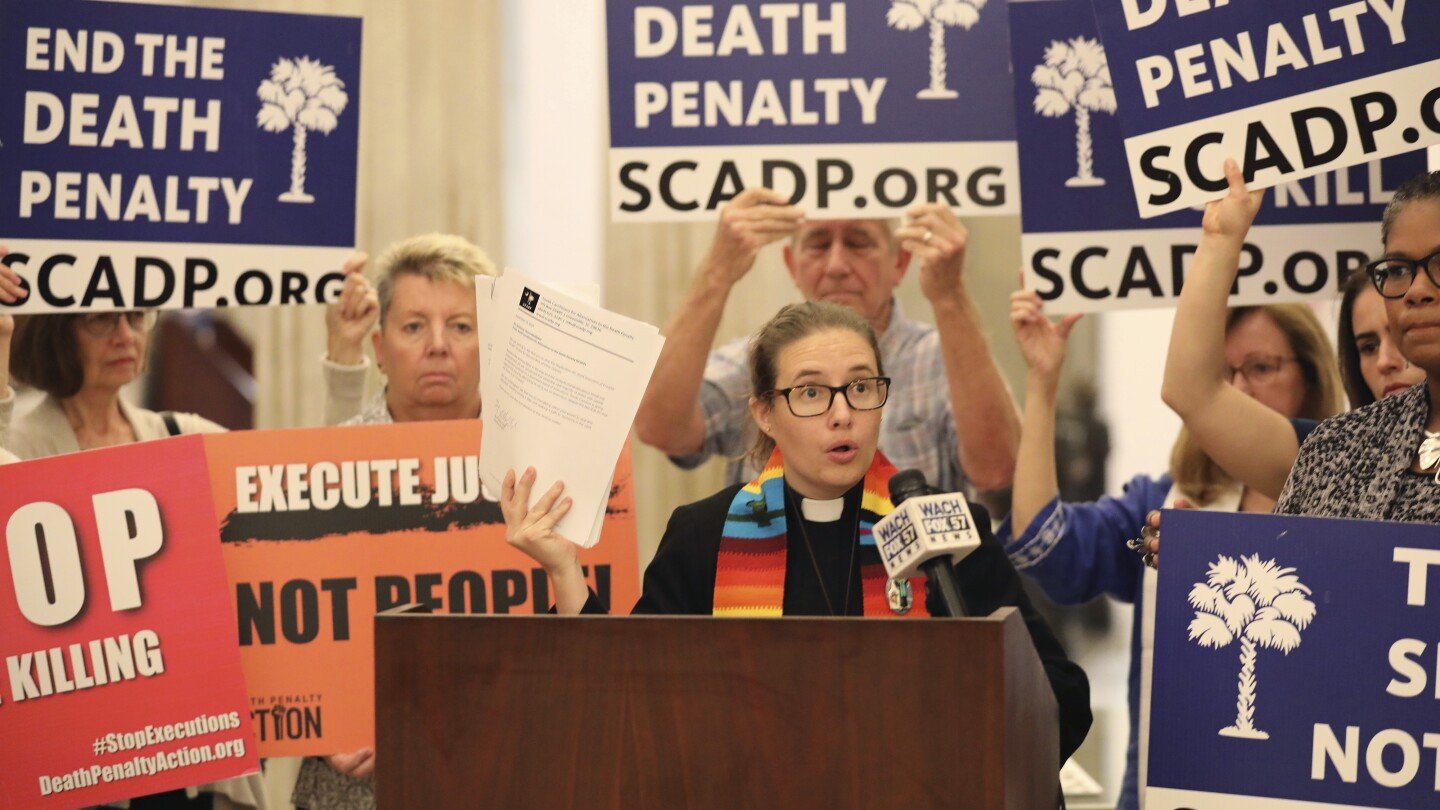Just days before inmate Freddie Owens is set to die by lethal injection in South Carolina, the friend whose testimony helped send Owens to prison is saying he lied to save himself from the death chamber.
Owens is set to die at 6 p.m. Friday at a Columbia prison for the killing of a Greenville convenience store clerk in 1997.
But Owens’ lawyers on Wednesday filed a sworn statement from his co-defendant Steven Golden late Wednesday to try to stop South Carolina from carrying out its first execution in more than a decade.
Prosecutors reiterated that several other witnesses testified that Owens told them he pulled the trigger. And the state Supreme Court refused to stop Owens’ execution last week after Golden, in a sworn statement, said that he had a secret deal with prosecutors that he never told the jury about.



I think you can. For example, I am 100% sure that Ethan Crumbley shot his classmates. (That doesn’t mean I think he should be executed though).
even in those cases there is still the question if a person is capable of guilt, because noone with a normally working psyche would entertain the thought of such deeds. i would support up to unlimited detention in a high-security psychiatric care facility (in such cases probably with a minimum stay of 10-15 years), which gives the population the needed security and the perp at least a chance to become a valuable member of society again. capital punishment is just a +1 to the bodycount.
Guilt does not require a normally working psyche. It requires understanding the difference between right and wrong. And by that we mean understanding that society has made some things illegal and expects you not to do them.
I am certain that Ethan Crumbley knew that some things are illegal. Therefore he is capable of guilt.
I had more the human aspect than the legal definition in mind when i thought about guilt.
i’m sure he knew it was illegal, but that knowledge often doesn’t help or just steps into the background when mental strain and pressures just get strong enough. I’m convinced that with working mental health care (and a social safety net thats worth a damn) a lot of those violent outbursts could be just not happening.
in the same vein i think that even if such an outburst happens, it is not per se indicative of repeat offenses, if the offender actually receives rehabilitation and not simple punishment (especially at such a young age) - in contrast to a career criminal who is used to the “life style” or someone who has a long list of violent behavior.
ETA: had time to read the complete article now. his was a crime of anguish and pain, who did not get help even when it was blatantly obvious what was happening inside of him.
With respect, it kind of misses the point to highlight a case where guilt is basically certain. That’s not my concern. My concern is the fringe cases with more ambiguity. I think that if there’s even a 1% chance that an innocent person is executed, the risk isn’t worth it.
I don’t believe pointing out a case where certainty is ensured missed the point; rather, it argues the point. He’s giving an example where execution would be okay due to their being absolute certainty, not arguing that it should be the same outcome where there isn’t absolute certainty.
But this is a case of all or nothing. You either say the death penalty IS acceptable or it ISN’T. There is no in between. So highlighting a case with certainty doesn’t address the issue of cases with less certainty.
That is a false dichotomy. If you accept the idea of the existence of cases with certainty there is the possibility of the restriction of the use of the death penalty to those cases.
It’s not a false dichotomy because it IS a dichotomy. It’s a binary decision. You either legalise capital punishment and accept the risk of executing someone innocent or you don’t legalise it. That is the choice.
That is not the false dichotomy you proposed, you just moved the goal posts to make it an actual dichotomy.
I literally just reworded the same point but ok
In all of those fringe cases, 12 people thought the person was guilty beyond any reasonable doubt. And beyond any reasonable doubt basically means 100% certainty (ie any doubt is unreasonable).
People who think it’s ok to execute someone when guilt is “100% certain” are the people who designed the current system.